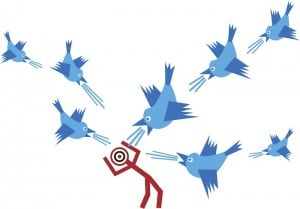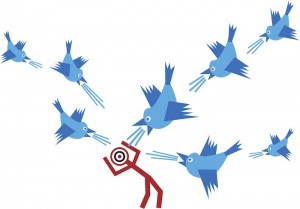 Well, first off, the good news is that advertising has a future. The industry goes up and down, but it won’t be going away. We won’t have to worry about our jobs being taken over by intelligent machines, either (Sorry Siri). The ad business will always require the strategic and creative skills of actual humans. People who are smart, agile, flexible and adaptable; those who have the ability and energy to constantly learn and relearn.
Well, first off, the good news is that advertising has a future. The industry goes up and down, but it won’t be going away. We won’t have to worry about our jobs being taken over by intelligent machines, either (Sorry Siri). The ad business will always require the strategic and creative skills of actual humans. People who are smart, agile, flexible and adaptable; those who have the ability and energy to constantly learn and relearn.

That being said, I now declare with absolute certainty that by 2020, everything in the ad business will change, and everything will pretty much stay the same. Let me explain the paradox.
Not long after I started my first job at Doyle Dane Bernbach back in the 1980s, I thought of advertising as saying the right thing to the right person at the right place at the right time. That description still holds up today, and I don’t think it’s going to change. We just have a lot more options.
The ultimate goal of advertising won’t change. It is and will always be to sell — whether it’s a product, brand, service, idea or candidate. Some folks in advertising like to say they’re really in the communications business as if advertising is too lowbrow. Of course we communicate. But when communications are created for the purpose of selling something, it’s called advertising.
Sure, we can use loftier language if “selling” sounds too crass. We engage, relate, intrigue, involve, inform, entertain, “info-tain,” attract, embrace, create a conversation, start a dialog, interact, tweet or “like.” But, ultimately I think what David Ogilvy said decades ago still holds true: “We sell or else.”
Styles change. Fashions change. Expressions changes. And, of course, technology will continue to change, bringing new ways to make connections between advertisers and people in ways we can’t even imagine.
Yet, as always, the most successful connections will be emotional ones. Our basic desires, feelings, needs, wants, fears, compulsions, hopes and dreams will always drive us. And it will always be the insights into human nature, combined with a powerful brand idea that will drive people to consider and to act. That’s because human nature doesn’t change.
But hasn’t social media changed everything? Yes and no. Social media is truly an astonishing tool, creating and strengthening relationships between brands and people. But when I’m posting or reading comments and criticisms, I’m reminded of what Bill Bernbach admitted in the 1960s: “Word of mouth is the best medium of all.” Isn’t social media word of mouth for the digital age?
They say the only constant is change. They also say the more things change the more that stay the same. And they are both right. That’s why the future of advertising will belong to those who embrace paradox by creating authentic, emotional connections between ever-changing technology and unchanging humanity.
But what’s an article on the future of advertising without a few predictions?
So here are seven predictions of what advertising should be and could be, but probably won’t be (sigh).
- In a stunning example of government transparency, Congress will pass a law allowing advertising to be displayed in the House Chamber of the U.S. Capital. Oil companies, financial firms, insurance companies, defense contractors, lobbyists, large individual donors and other “sponsors” will tastefully display their corporate logos for all to see during sessions, just like sports stadiums.
- The CEOs of all the major advertising holding companies will agree to new personal compensation rules. Their pay increases will only occur if actual revenues grow. Their raises and bonuses will not be awarded on the backs of people laid off in order to show a profit.
- Media companies and ad agencies will merge back together after admitting the break-up was all a silly misunderstanding.
- “Crowdsourcing” will be renamed “slave-lancing” to more accurately describe what this degrading variation of freelancing really means.
- Ad agencies will abolish the practice of hiring college graduates as unpaid interns.
- The never-ending debate over the superiority of traditional media versus digital media will end. Both sides will agree that every medium is an important part of the whole, serving distinct and important services.
- Grok will become the world’s first trillion-dollar ad agency.
From The Wharton Future of Advertising Program's “Advertising 2020 Project.”